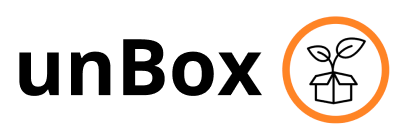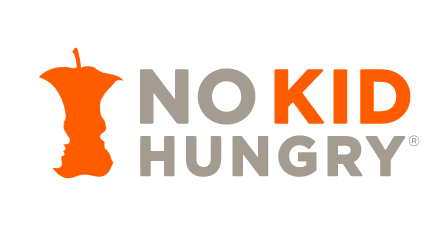BayAreaCommunity.org
A community resource map for the SF Bay Area, built to help local residents find reliable information about services they can use - from their phone, on a simple platform, in their preferred language.

Started in March 2020 as a school meals map, we built BayAreaCommunity.org (BAC) into a mobile-friendly, multilingual resource website sharing information about community services across the SF Bay Area.
For the 18 month duration of COVID-19 Grab and Go school meals sites, we updated information about over 1,100 school meal sites every two weeks. Now, we sunset BayAreaCommunity.org, and chart a new path with One Degree!
Read on to explore the story of BAC - what we did, what we learned, and the lessons we bring to our future work to empower individuals and communities with the tools to overcome challenges and achieve their goals.
BAC Chapter 1 - Mapping School Meals
In March 2020, COVID-19 school closures threatened to end school meals. For millions of US children, these are the most reliable, healthy meals of the day. The US Department of Agriculture (USDA) mobilized rapidly, allowing school districts to serve not only students in their district, but all children, at flexible service times and locations. These times and locations, however, changed frequently, and there was no single, reliable resource to help families across the Bay Area find out where meals were available. In response, our team used Google MyMaps to create and update a simple bilingual Bay Area school meals map that worked for phones.
Within two weeks, our map received half a million views.
Within two weeks, our map received half a million views, and school district websites displayed our site. We partnered with Stanford Pediatric Advocacy to update resource flyers for Stanford Hospital’s low-income patients, and distributed them to partners and counties. We began supplying our school meals data to No Kid Hungry’s National Free Meals Texting Hotline. The UC Nutrition Policy Institute and Nourish CA leveraged our data to advocate for expanding school meal funding, child nutrition benefits, and USDA school meal waivers. We received active guidance from San Francisco Unified School District’s (SFUSD) Student Nutrition Services.
“Share Our Strength’s No Kid Hungry campaign relies on unBox’s clean, consistent and accurate data to fill out our Find Free Meals Map and Texting Hotline. unBox accommodated our data structure and intake methods to create a system custom to us. This customization saved us time and made the merging of data sets easy and convenient. We highly recommend working with unBox.” - Chelsea MacCormack, Associate for the No Kid Hungry Share Our Strength Center for Best Practices
From spring of 2020 onward, ten dedicated student and recent graduate volunteers updated our school meals database every two weeks, by checking school district websites and social media pages, and calling districts. We conducted monthly data quality audits to ensure we continued to provide Bay Area families with accurate, updated, accessible information.
BAC Chapter 2 - Building Beyond School Meals
We had seen the need for information on school meals. Partners also highlighted urgent needs for other resources including cash assistance, healthcare, and housing. In response, we organized student volunteers from Stanford’s Cardinal and Pacific Free Clinics, Stanford Law’s COVID Pro Bono Program, UC Berkeley, USF, and Gunn, Palo Alto, Harker, and Castilleja high schools to create and update a database of, in addition to school meals, legal aid, healthcare, cash assistance, domestic violence, food pantries, and CalFresh-accepting retailers. Stanford Data Challenge Lab alumni helped us build a mobile-friendly site. We collaborated with Code for America’s Chapel Hill chapter, creators of the similar nccovidsupport.org map, to adapt their code for our site, and partnered with Code for San Jose for ongoing technical support.
We had built the beta version of a multi-resource, mobile friendly resource website. However, in order to build out the website to truly respond to users’ real needs, we needed to more deeply understand local residents’ challenges in accessing social services. A first draft of our mobile-friendly site and database now built, we partnered with UBRANST 164, the Stanford Sustainable Cities class, to host 1 hour compensated need-finding interviews with 9 low-income Bay Area residents (8 of whom spoke predominantly Spanish), and 12 social workers. The interviews revealed that individuals seeking resources, and those providing referrals, are often inundated with many overlapping and poor-quality resource lists, databases, and maps - most of which are not updated, available only in English, not mobile-friendly, and not relevant to the specific needs of the communities they serve.
We asked interviewees about their information needs, then shared our evolving website. Almost all were frustrated at the fragmentation and poor quality of other information resources, and sought a central, reliable tool. One social worker explained that information about pandemic-era resources had “gotten less relevant because many of these resources don’t exist anymore or ran out. [Resource lists] got thrown together quickly. There was overlap between the different ones.” Another, exasperated at “always trying to put together spreadsheets and resource links” sought a “clickable and searchable” resource. One newly-unemployed mother exclaimed in Spanish, “Of all the websites of the city, BayAreaCommunity.org should be publicized! How can this site be brought to the top of a Google search, or to more people's attention? There isn't a website as complete as this one. To find resources for Calfresh and WIC, there are separate websites for each. It's nice that with BAC, the different resources are all in one place.”
This project was made possible through the tireless work of over 50 passionate, determined volunteers. They include, but are not limited to, those who 1) led and coordinated volunteer data entry efforts (Aidan Lee*, Allie Szekely, Anna Greene, Christopher LeBoa, Emily Yang*, Kashika Bharol*, Zoya Chughtai, Brandon Bergsneider, Trillium Chang, Taylor Evenson, Sam Wallace-Perdomo, Ashley Nies) 2) fearless data entry (“data warrior”!) volunteers (Abby Romo, Alvin Lee, Andy Chen, Angelina Polselli, Anna Zheng, Annabelle Smith, Aulden Foltz, Clarissa Lee*, Dana Zhao, Isabelle Foster, Kaile Maske, Matthew Choi*, Miles Montegut, Ryan Lee), 3) those who coded, developed, and designed our mobile-friendly website (Maeva Finker, Carlos Alba, Claire Huang, Hannah Hudson, Marvin Bolaňos, Lawrence Wu, Patrick Chan, Charles Cho, Christopher Auyeung), 4) our translators (Angela Chau, Benjamin Reyes Topacio, Celine Gandingco, Karen I. Amaya Aguirre, Micah Trautwein, Rachel Koo, Songnan Wang), and 5) those who built our data infrastructure (Anjali Katta, Anthony Chen, Ashwin Wagadarikar, Deeya Viradia, Gowri Vadmal*, Jennier Ren, Jared Klegar, Matthew Ding, Michael Chen*, Rob Resma, Darlene Wong, Abha Ramchandani, Shivani Malandkar). We are immensely grateful to Joyce Tagal for her leadership in founding BAC; to Charlie Hoffs for taking up project leadership from summer 2020 to its end in summer 2021; to Maeva Fincker and our original developers, who built our custom UI in partnership with, and adapted from, the wonderful NC COVID Support (now Meals For Families!) team; Bill Behrman of the Stanford Data Lab for his sage guidance; Cheryl Phillips of Big Local News for her publicity support; Annie Steenson at Code for San Jose; Anne Moertel, Renata Cauchon, and Noelia Oropeza at SFUSD; Melanie Ramirez at Stanford Pediatric Advocacy; Chelsea MacCormack at No Kid Hungry; students from the Stanford Future Bay Initiative, Stanford Sustainable Cities class, and Stanford Law COVID Pro Bono Program; and CARTO, Open Referral, DataKind San Francisco, and Mapbox for their technical support and advising.* These incredible individuals continue to lead our partnership with One Degree!
Interviewees were excited by BAC’s accessibility, in contrast to other resources’ limited language capacity and user-unfriendliness. One school counselor affirmed, “Just having these differences in languages at the top makes a huge difference. It’s more official, it’s more inclusive. It just feels more welcoming.” One mother we interviewed, whose children receive daily school meals, said, “Muchos sitios no tiene. Es útil que puedo hacer un búsqueda en mi propio idioma. (Many sites do not have [translations]. It is useful that I can do a search in my own language).” Also, many individuals navigating from mobile phones as their primary device struggle with non-mobile-friendly websites. One social worker explained, “Navigating through the web is still challenging for many clients. Many clients use their phone as their connection to the web. It’s not that easy navigating lots of sites because they’re designed for a larger screen.” An elementary school social worker added, “I am reluctant to send links and online tools, because of the limitations of what the tools have looked like now.”
Interviewees stressed that, if expanded, BAC must ensure accuracy, cultural relevance, and accessibility. One cautioned, “You burn a lot of credibility if we don’t know they are good resources. You don’t want to make a mistake, then have a family come back and say it didn’t work. The quality of the resource and the experience are super important, and it's really hard to know what it will be like without having personal connections.”
Finally, interviewees highlighted how simple resources from trusted sources ensure safety and reliability. One father shared, “The churches offer a lot. Our friends notified us about a food bank. If the school can help, that’s great, but otherwise we’re not going to look for other places we don’t trust.” One mother received information from her community center, church, and WhatsApp parent group. Some social workers reported online parent resource-sharing (“WhatsApp is super big”) though others said families lacked such networks. One resident only received information in-person. Residents used many information resources, but their main sources were familiar and trustworthy.
We collated and studied the interview’s insights. They highlighted the depth, complexity, and systemic challenges that make it difficult for Bay Area residents to access the information they need to chart a resilient path out of poverty, towards success and wellbeing. As a team, we brainstormed how we could best leverage our resources as the BayAreaCommunity.org project team, to best connect local residents with the kind of reliable information about social services that can change lives.
BAC Chapter 3 - One Degree
As we built BayAreaCommunity.org, we landscaped dozens of social service databases, maps, directories, fliers, and searchable websites, and met with their users and creators. There were benefits and drawbacks of each tool - but among them we failed to find a single effective solution to the challenge of outdated, non-user-friendly information. Until we found One Degree.
One Degree is a resource website, started in the SF Bay Area but now covering several urban regions nationwide. An initiative under the civic technology organization Alluma, One Degree’s (OD’s) mission is “to empower people to create a path out of poverty for themselves and for their communities” to work towards “a world without poverty, where everyone can find the help they need quickly and easily, and can hold their service providers accountable”.
Our team resonates deeply with OD’s vision, working philosophy, and team culture. Ongoing meetings with the OD team, and internal BAC brainstorms, revealed the mission-alignment of our two projects. In summer of 2021, we made a collective team decision to partner with One Degree.
Now, we supporting One Degree in helping initiate a youth volunteer recruitment campaign. We are outreaching to and onboarding high school students, college students, and recent grads to volunteer with One Degree, to help update their resource database which supports over 40,000 users.




